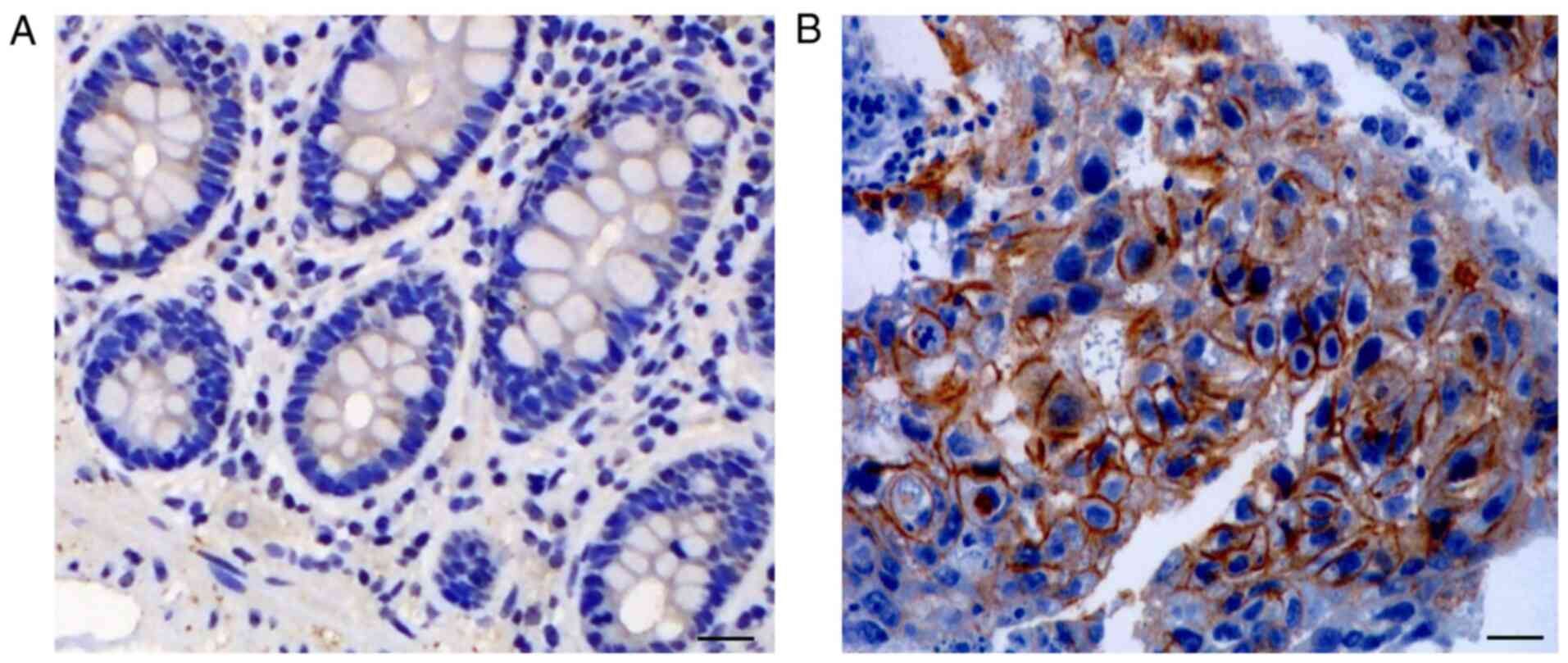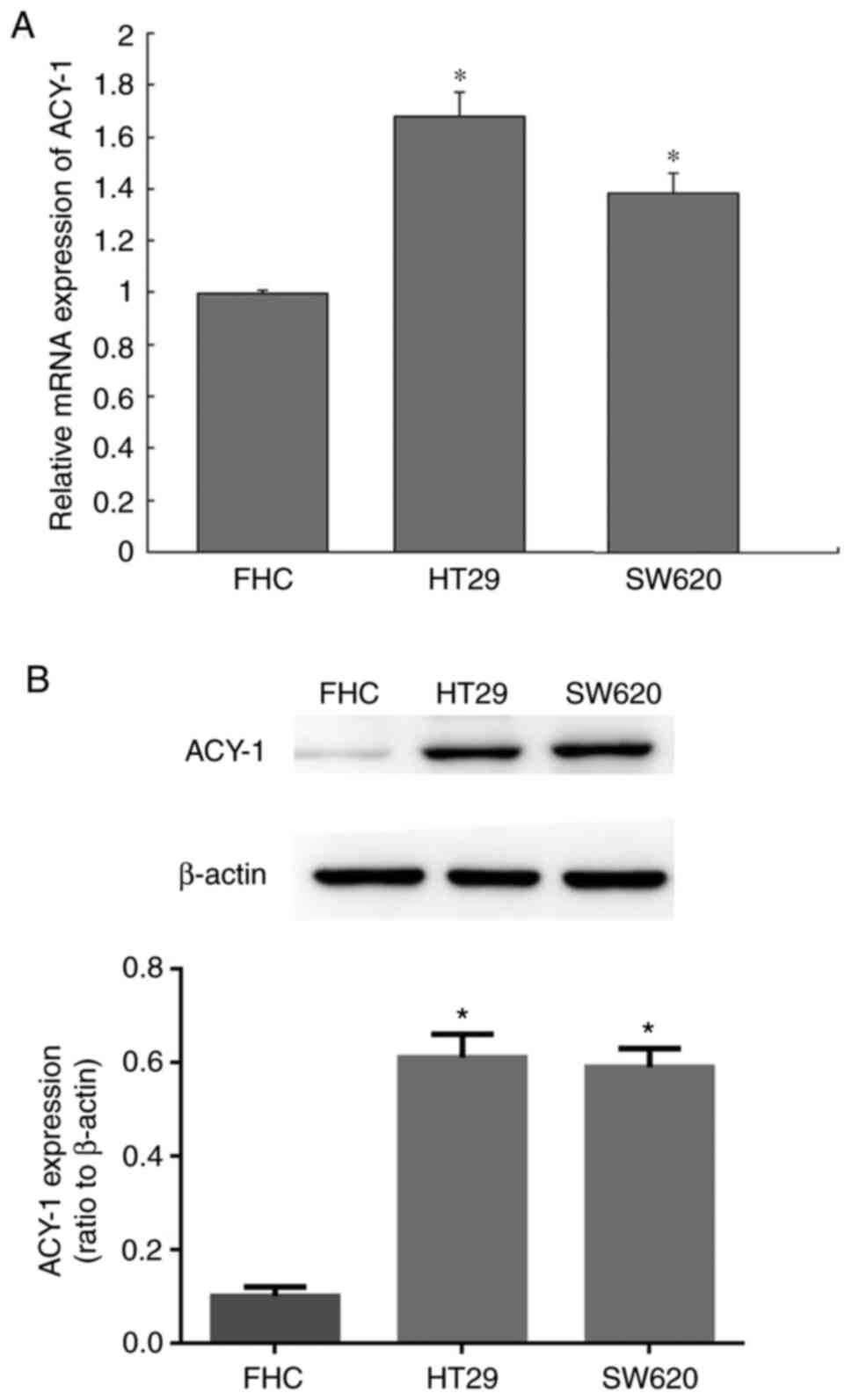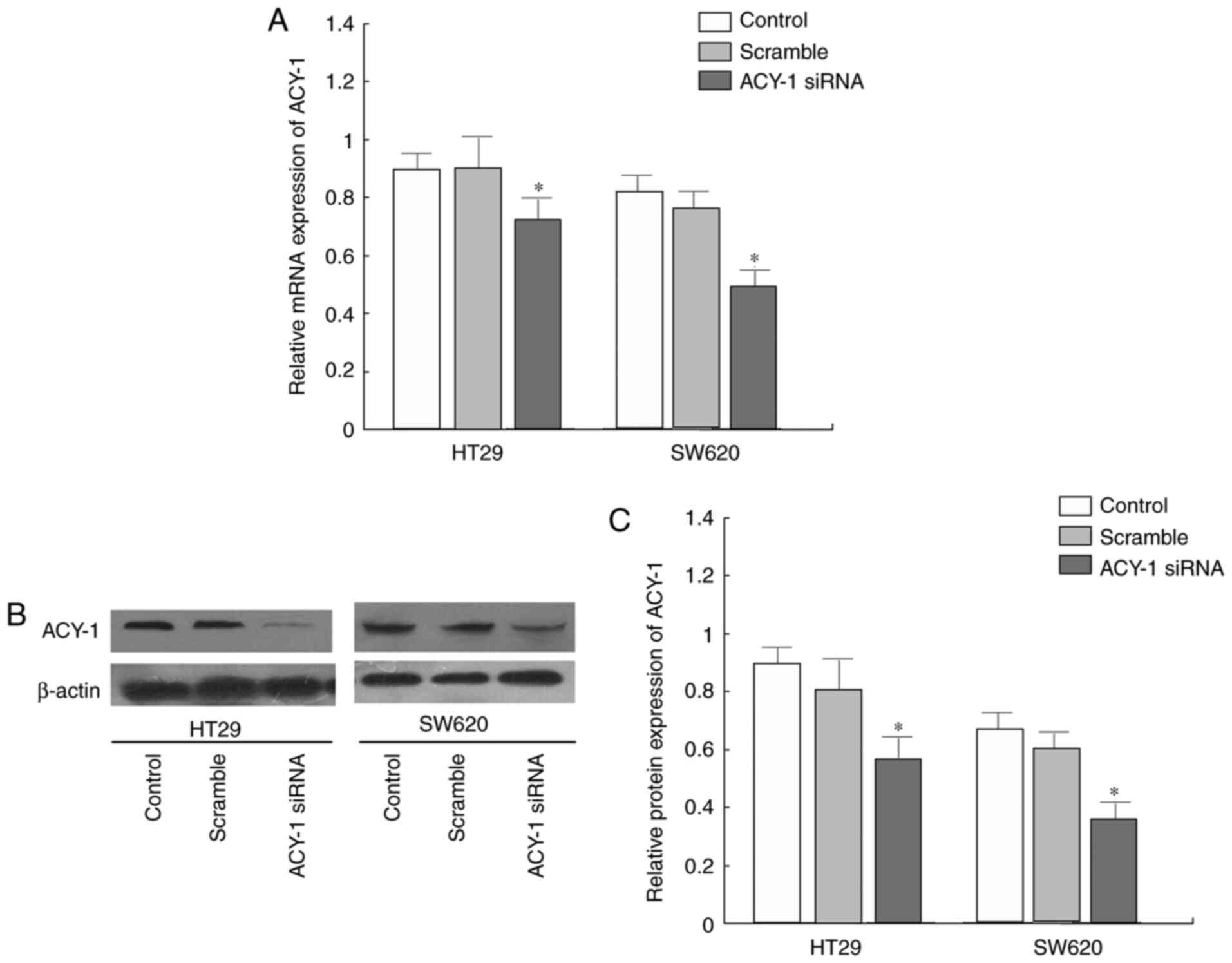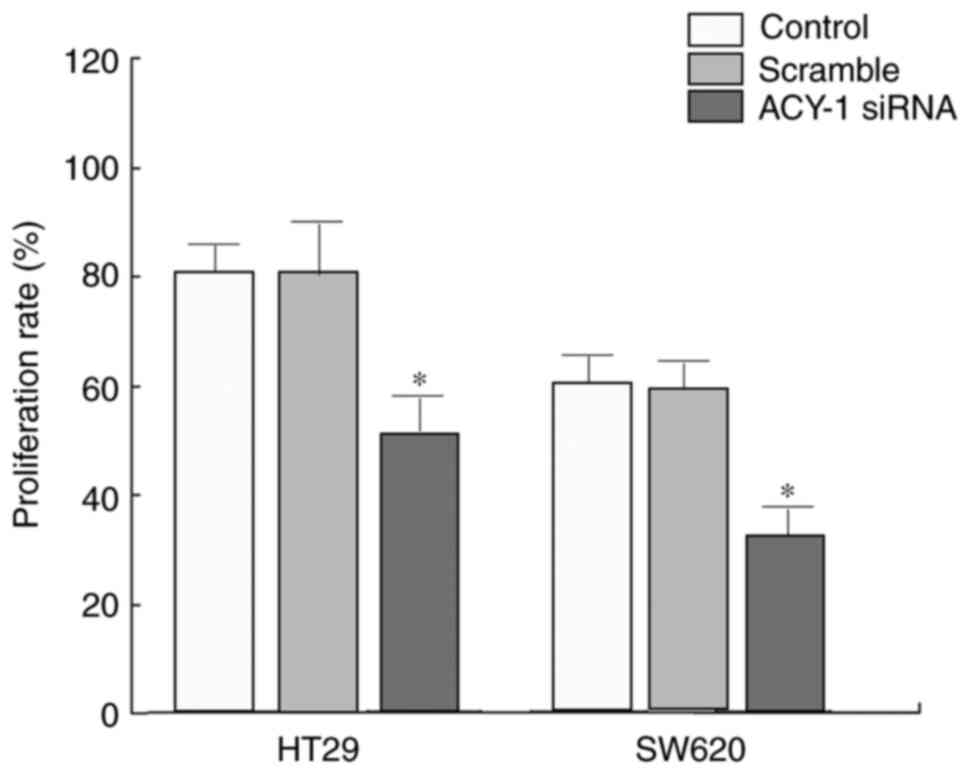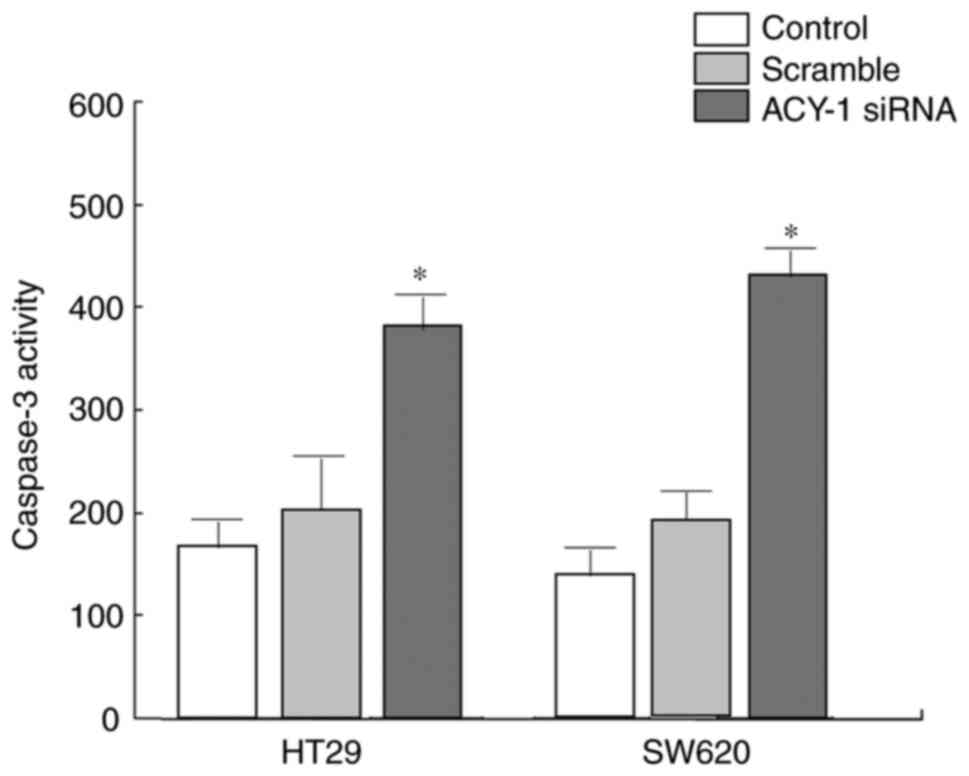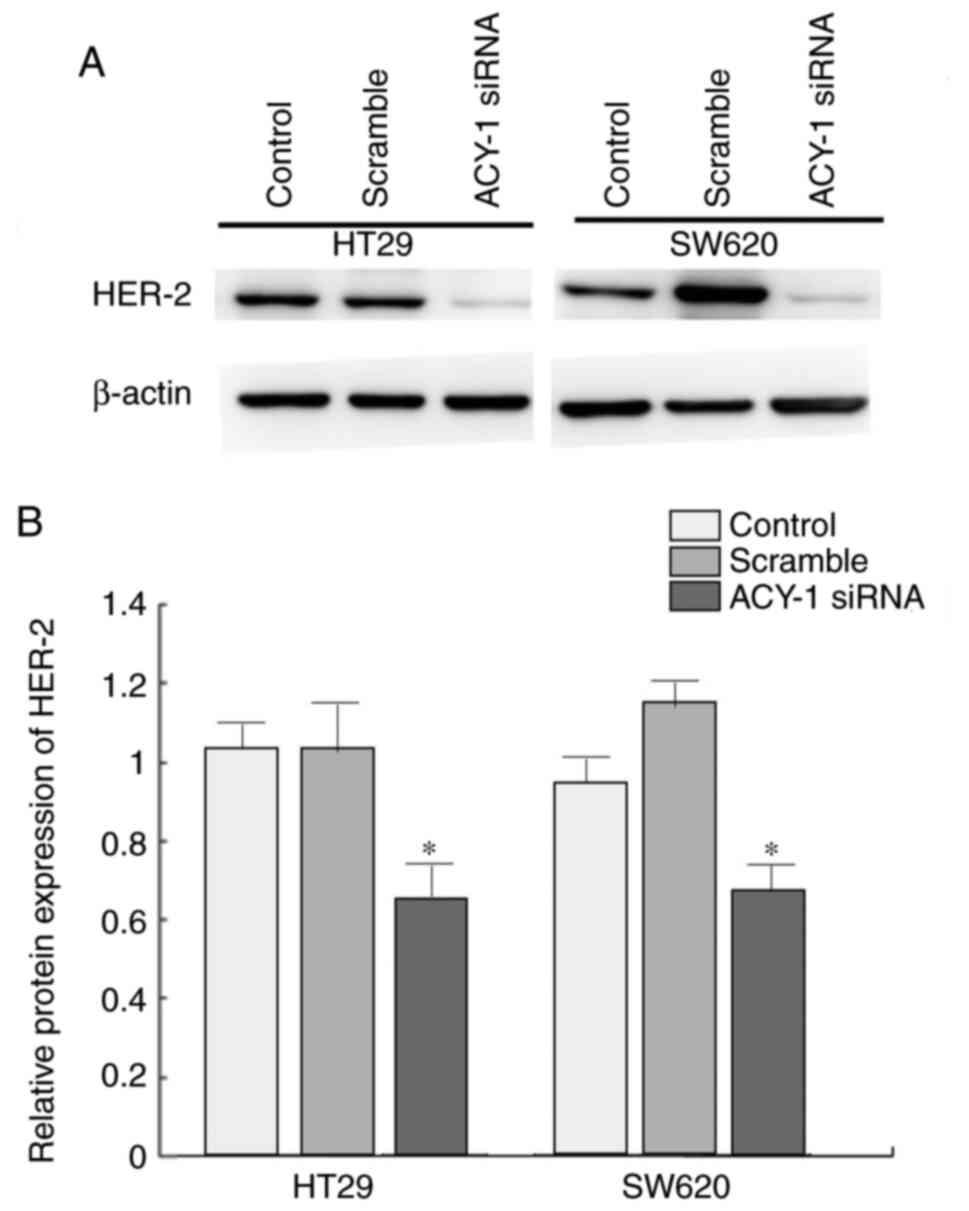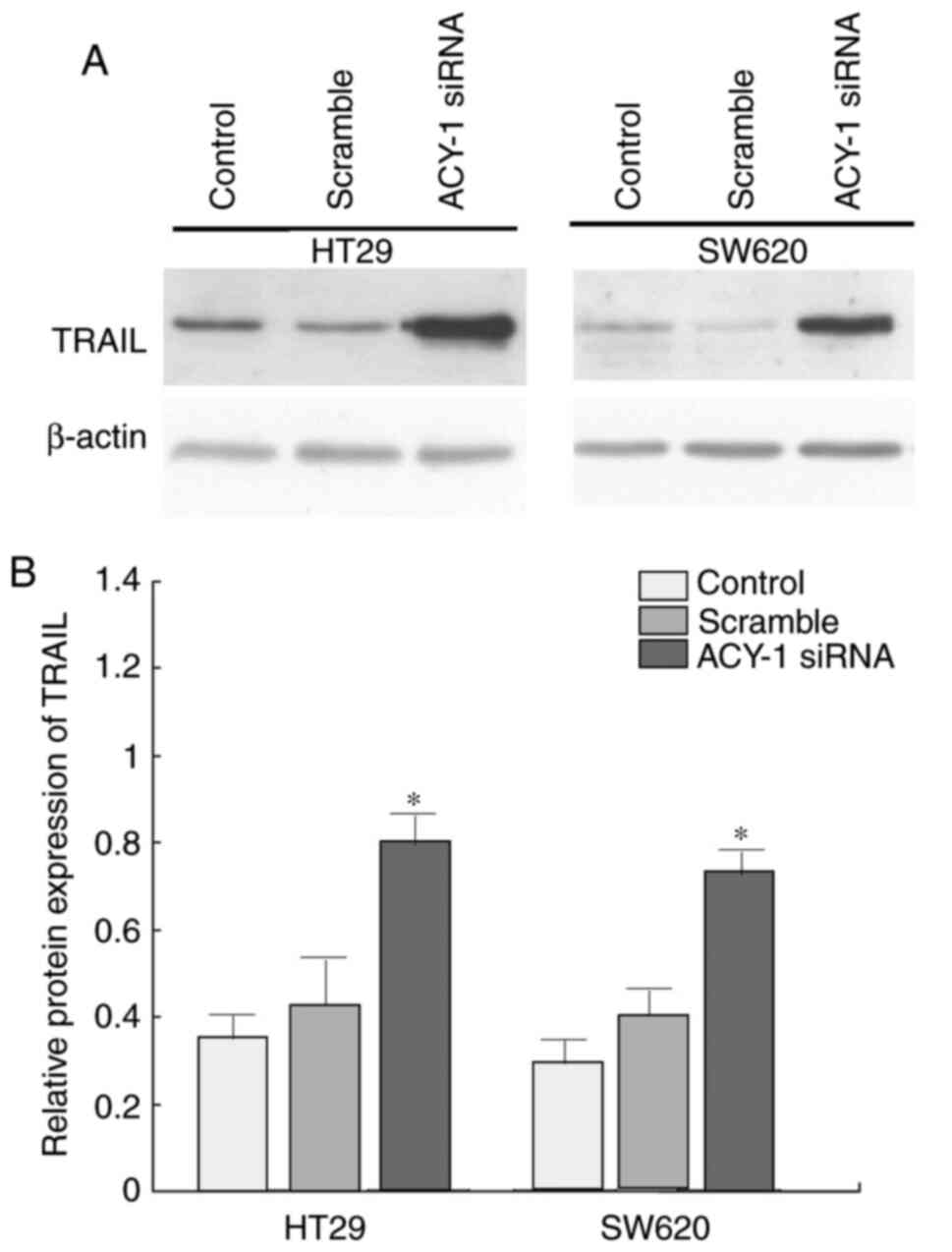|
1
|
Pratap Singh A, Kumar A, Dhar A, Agarwal S
and Bhimaniya S: Advanced colorectal carcinoma with testicular
metastasis in an adolescent: A case report. J Med Case Rep.
12(304)2018.PubMed/NCBI View Article : Google Scholar
|
|
2
|
Hu YH, Wei JW, Chang H, Xiao WW, Lin JZ,
Cai MY, Cai PQ, Kong LH, Chen G, Pan ZZ, et al: The high pCR rate
of sandwich neoadjuvant treatment in locally advanced rectal cancer
may translate into a better long-term survival benefit: 5-year
outcome of a Phase II clinical trial. Cancer Manag Res.
10:4363–4369. 2018.PubMed/NCBI View Article : Google Scholar
|
|
3
|
Hu FB: Globalization of diabetes: The role
of diet, lifestyle, and genes. Diabetes Care. 34:1249–1257.
2011.PubMed/NCBI View Article : Google Scholar
|
|
4
|
Guedj N, Maggiori L, Pote N, Norkowski E,
Cros J, Bedossa P and Panis Y: Distal intramural and tumor spread
in the mesorectum after neoadjuvant radiochemotherapy in rectal
cancer: About 124 consecutive patients. Hum Pathol. 52:164–172.
2016.PubMed/NCBI View Article : Google Scholar
|
|
5
|
Pedziwiatr M, Pisarska M, Kisielewski M,
Major P, Mydlowska A, Rubinkiewicz M, Winiarski M and Budzynski A:
ERAS protocol in laparoscopic surgery for colonic versus rectal
carcinoma: Are there differences in short-term outcomes? Med Oncol.
33(56)2016.PubMed/NCBI View Article : Google Scholar
|
|
6
|
Kong I, Vorunganti S, Patel M, Farrell T,
Timotin E, Quinlan-Davidson S, Pond G, Sur R and Hunter R:
Prospective comparison of rectal dose reduction during
intracavitary brachytherapy for cervical cancer using three rectal
retraction techniques. Brachytherapy. 15:450–455. 2016.PubMed/NCBI View Article : Google Scholar
|
|
7
|
Yu E, DiPetrillo TA, Ramey S and Leonard
KL: Comparison of endorectal ultrasound versus pelvic magnetic
resonance imaging for radiation treatment planning in locally
advanced rectal cancer. Pract Radiat Oncol. 5:e451–e455.
2015.PubMed/NCBI View Article : Google Scholar
|
|
8
|
Hernández J, Molins L, Fibla JJ, Heras F,
Embún R and Rivas JJ: Grupo Español de Metástasis Pulmonares de
Carcinoma Colo-Rectal (GECMP-CCR) de la Sociedad Española de
Neumología y Cirugía Torácica (SEPAR). Role of major resection in
pulmonary metastasectomy for colorectal cancer in the Spanish
prospective multicenter study (GECMP-CCR). Ann Oncol. 27:850–855.
2016.PubMed/NCBI View Article : Google Scholar
|
|
9
|
Simkens GA, van Oudheusden TR, Braam HJ,
Wiezer MJ, Nienhuijs SW, Rutten HJ, van Ramshorst B and de Hingh
IH: Cytoreductive surgery and HIPEC offers similar outcomes in
patients with rectal peritoneal metastases compared to colon cancer
patients: A matched case control study. J Surg Oncol. 113:548–553.
2016.PubMed/NCBI View Article : Google Scholar
|
|
10
|
Balamurugan TS, Huang CH, Chang PC and
Huang ST: Electrochemical molecular switch for the selective
profiling of cysteine in live cells and whole blood and for the
quantification of aminoacylase-1. Anal Chem. 90:12631–12638.
2018.PubMed/NCBI View Article : Google Scholar
|
|
11
|
Caira S, Iannelli A, Sciarrillo R,
Picariello G, Renzone G, Scaloni A and Addeo P: Differential
representation of liver proteins in obese human subjects suggests
novel biomarkers and promising targets for drug development in
obesity. J Enzyme Inhib Med Chem. 32:672–682. 2017.PubMed/NCBI View Article : Google Scholar
|
|
12
|
Meyer HJ, Gundermann P, Hohn AK, Hamerla G
and Surov A: Associations between whole tumor histogram analysis
parameters derived from ADC maps and expression of EGFR, VEGF, Hif
1-alpha, Her-2 and Histone 3 in uterine cervical cancer. Magn Reson
Imaging. 57:68–74. 2019.PubMed/NCBI View Article : Google Scholar
|
|
13
|
Schizas D: Should addition of five years
of ovarian suppression to tamoxifen be ‘must’ for hormone receptor
positive and HER-2 positive breast cancer under the age of 35? J
BUON. 23(1201)2018.PubMed/NCBI
|
|
14
|
Tabak SA, Khalifa SE and Fathy Y: HER-2
immunohistochemical expression in bone sarcomas: A new hope for
osteosarcoma patients. Open Access Maced J Med Sci. 6:1555–1560.
2018.PubMed/NCBI View Article : Google Scholar
|
|
15
|
Radke DI, Ling Q, Hasler R, Alp G,
Ungefroren H and Trauzold A: Downregulation of TRAIL-receptor 1
increases TGFβ type II receptor expression and TGFβ signalling via
microRNA-370-3p in pancreatic cancer cells. Cancers (Basel).
10(E399)2018.PubMed/NCBI View Article : Google Scholar
|
|
16
|
Wang Z, Zhang M, Lv X, Fan J, Zhang J, Sun
J and Shen Y: GroEL/ES mediated the in vivo recovery of TRAIL
inclusion bodies in Escherichia coli. Sci Rep.
8(15766)2018.PubMed/NCBI View Article : Google Scholar
|
|
17
|
Byun HS, Zhou W, Park I, Kang K, Lee SR,
Piao X, Park JB, Kwon TK, Na M and Hur GM: C-27-carboxylated
oleanane triterpenoids up-regulate TRAIL DISC assembly via p38 MAPK
and CHOP-mediated DR5 expression in human glioblastoma cells.
Biochem Pharmacol. 158:243–260. 2018.PubMed/NCBI View Article : Google Scholar
|
|
18
|
Livak KJ and Schmittgen TD: Analysis of
relative gene expression data using real-time quantitative PCR and
the 2(-Delta Delta C(T)) method. Methods. 25:402–408.
2001.PubMed/NCBI View Article : Google Scholar
|
|
19
|
He X, Hong Y, Wang X, Zhang X, Long J, Li
H, Zhang B, Chen S, Liu Q, Li H, et al: Identification and clinical
significance of an elevated level of serum aminoacylase-1
autoantibody in patients with hepatitis B virus-related liver
cirrhosis. Mol Med Rep. 14:4255–4262. 2016.PubMed/NCBI View Article : Google Scholar
|
|
20
|
Ali S and Sheerin NS: Biomarkers of acute
injury: Predicting the long-term outcome after transplantation.
Kidney Int. 84:1072–1074. 2013.PubMed/NCBI View Article : Google Scholar
|
|
21
|
Wei X, Li J, Xie H, Ling Q, Wang J, Lu D,
Zhou L, Xu X and Zheng S: Proteomics-based identification of the
tumor suppressor role of aminoacylase 1 in hepatocellular
carcinoma. Cancer Lett. 351:117–125. 2014.PubMed/NCBI View Article : Google Scholar
|
|
22
|
Welberry Smith MP, Zougman A, Cairns DA,
Wilson M, Wind T, Wood SL, Thompson D, Messenger MP, Mooney A,
Selby PJ, et al: Serum aminoacylase-1 is a novel biomarker with
potential prognostic utility for long-term outcome in patients with
delayed graft function following renal transplantation. Kidney Int.
84:1214–1225. 2013.PubMed/NCBI View Article : Google Scholar
|
|
23
|
Zhong Y, Onuki J, Yamasaki T, Ogawa O,
Akatsuka S and Toyokuni S: Genome-wide analysis identifies a tumor
suppressor role for aminoacylase 1 in iron-induced rat renal cell
carcinoma. Carcinogenesis. 30:158–164. 2009.PubMed/NCBI View Article : Google Scholar
|
|
24
|
Iqbal N and Iqbal N: Human epidermal
growth factor receptor 2 (HER2) in cancers: Overexpression and
therapeutic implications. Mol Biol Int. 2014(852748)2014.PubMed/NCBI View Article : Google Scholar
|
|
25
|
Yang M, Fang X, Li J, Xu D, Xiao Q, Yu S,
Hu H, Weng S, Ding K and Yuan Y: Afatinib treatment for her-2
amplified metastatic colorectal cancer based on patient-derived
xenograft models and next generation sequencing. Cancer Biol Ther.
20:391–396. 2019.PubMed/NCBI View Article : Google Scholar
|
|
26
|
Choi SA, Lee C, Kwak PA, Park CK, Wang KC,
Phi JH, Lee JY, Chong S and Kim SK: Histone deacetylase inhibitor
panobinostat potentiates the anti-cancer effects of mesenchymal
stem cell-based sTRAIL gene therapy against malignant glioma.
Cancer Lett. 442:161–169. 2019.PubMed/NCBI View Article : Google Scholar
|















